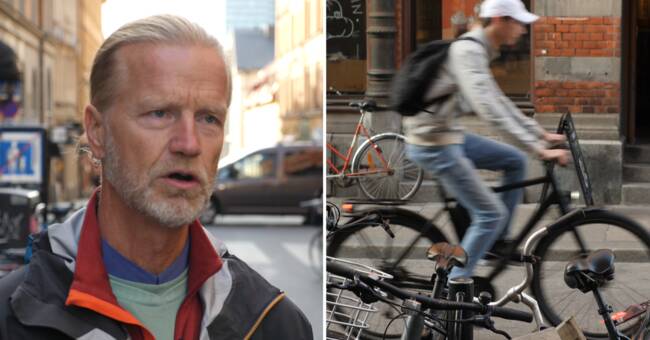The European Cycling Federation ECF estimates that cycling's annual global benefits are worth € 150 billion.
The largest items are 'longer and healthier lives' (EUR 73 billion) and 'bicycle tourism' (EUR 44 billion).
According to the Swedish Transport Administration, the Swedish state and the municipalities are jointly investing around SEK 1.7 billion in cycling this year.
By comparison, the UK has announced £ 2.2bn over five years on cycling ventures, and Ireland wants to expand cycling to 10 per cent of the transport sector.
Paris is investing one and a half billion euros in a 650-kilometer new cycle path, something that will be done at the expense of 75 percent of the parking spaces for cars being removed.
- In cities like London and Paris, they build miles of bike lanes, increase the number of bike parking spaces and remove car parking spaces on streets to benefit cycling, but in Sweden very little happens, says lobby organization Swedish Cycling CEO Klas Elm to SVT.
- Sweden is doing very well historically compared to the investments we have made before, and the state annually invests more and more money in infrastructure for bicycles.
But I think we need to make the public more aware of the benefits of cycling, says Rami Yones, chairman of the National Cycling Council who works for the Swedish Transport Administration.
"Dare to choose the bike"
The Swedish Transport Administration estimates that seven out of ten Stockholmers can cycle to work in less than half an hour, but despite the increasing trend, only one in ten still has cycling as their main means of transport.
- The financial instruments for infrastructure are important, but basically this is about a knowledge and willingness from the public to dare to choose the bike, says Rami Yones at the Swedish Transport Administration.
But Swedish Cycling's CEO Klas Elm thinks that greater investments are needed.
- You can remove the taxation of service bicycles, and you can work with the training allowance that employers provide.
The car city is not the future, and I think that this change we see during the strange 2020 will contribute to us having to catch up with the rest of Europe, says Klas Elm.

